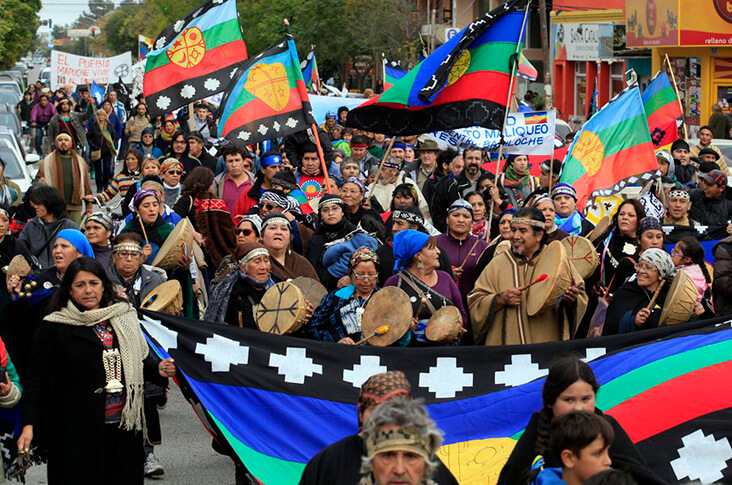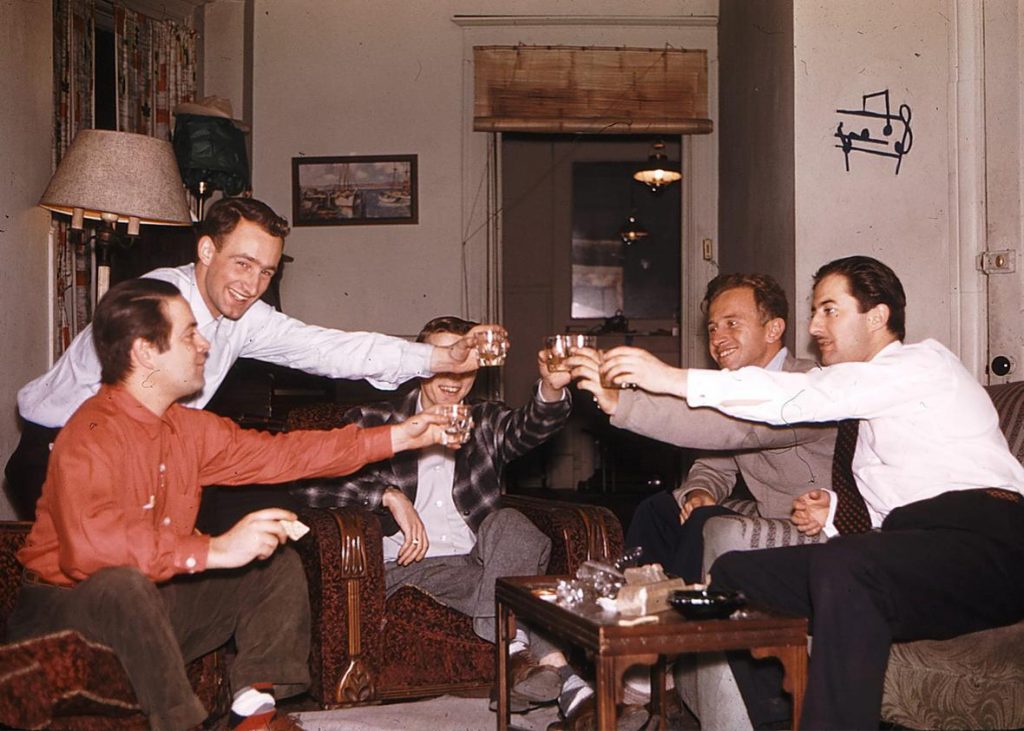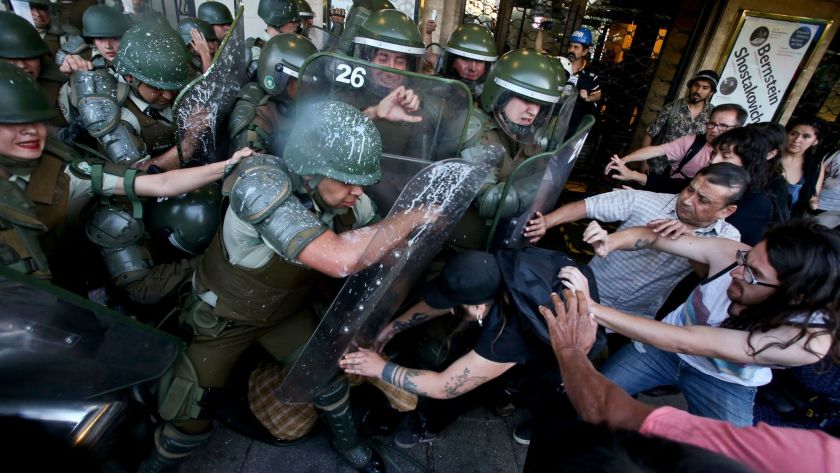By Lily Walters

Introduction

Famous Chilean poet Pablo Neruda said it best in his book Memorias, published in 1974 — Neruda writes, “whoever doesn’t know the Chilean forests doesn’t know this planet. I have come out of that landscape, that mud, that silence to go singing through the world (Neruda, 1974).” Pablo Neruda describes his feelings toward the Chilean forests that many other Chileans share, one of awe and pleasure. The Chilean forest totals to more than twenty two percent of the total area of Chile and is home to some of the worlds oldest trees. Not only is it the habitat of many precious animal species, it is also home to more than five million people. One and a half million of those people are the Mapuche people.
The Mapuche people live south of Santiago and spread into Argentina as well. They have lived in the forests of Chile for thousands of years and know the land well. However, as of recently, there has been disruption within their community with the interference of Europeans in their way of life. These Europeans have asserted themselves as superior to the long standing Mapuche people and exploited them because of that. There have been many injustices against the Mapuche people, but the biggest has been the theft of their land by the government and specific logging companies. The Mapuche people have responded with protests, and after centuries of being ignored, have resorted to violence by more radical members of the group. This is incredibly important, as this is not only an environmental issue but a human rights issue that is not talked about enough.
The Mapuche People
The Mapuche people are a resilient group, as they have faced many challenges in their long history. The Mapuche have been living on and with their land of southern Chile and Argentina since as early as 500 BC. They are a peaceful group with men leading the food production and women being the lead healers of the tribe. These lead healers are called Machi, they are the ones who hold the Mapuche’s fortune in their hands. When a new Machi is inducted into her position, there is a big ceremony that cannot take place without the Kultrun drum. On the drum for each ceremony, figures symbolizing the Earth are drawn. If the sound is correct when the ceremony leader hits it, the Earth is going to bring luck to their new healer and prosperity to the tribe (National Museum of the American Indian).
The Machi ceremony is one that is still carried out today, proving their longevity and connection to the Earth around them. However, their original peaceful way of life was halted at the arrival of Spaniards in 1540. Although they fought hard, the Mapuche lost their battle with the Europeans and much of their original territory was taken from them. This was a win for Chileans as they were now one step closer to a ‘civilized’ nation. This was a huge loss to Mapuche people as they saw their freedom being taken away from them. Throughout the centuries and many different governments, the Mapuche land ownership has ebb and flowed until 1973, when the military government deemed that “the divided lands [would] no longer be considered indigenous lands, and the people living on those lands [would] no longer be considered indigenous (Boccara, 2002).” This kind of sentiment would completely halt any patience that the Mapuche people had for their government. In 1993, three years after the end of the Chilean Military Dictatorship, the Chilean government decided to create an Indian Affairs organization to ensure the Mapuche people are represented in the politics of Chile. However, this did not turn out as many were hoping, as the government has other priorities.
Neo-liberalism Influence on Chilean Government

Beginning in the Chilean military dictatorship of 1973-1990, the Chilean elites have had a tie to large corporations and the benefits that they provide to other elites in the system. The kind of neoliberal thinking that is present stems from the notorious ‘Chicago Boys’. The Chicago Boys are a group of men, who had close contact with the members of the Chilean Junta, that attended Chicago University. After obtaining a degree in American foreign economics, the group returned to Chile with the promise of supporting the dictatorship’s violent force with their economic plans (Letelier, 1976). Here began the long, toxic relationship between the Chilean government and foreign corporate intervention. Many of the issues surrounding the movement toward neoliberalism and the free market pertain to the exploitation of natural resources within the country and the people who are poorly affected by these policies.
Historian Patricia Richards explains that there was a significant increase of those in poverty after the institution of free markets in Chile (Richards, 2013). Many corporations were moving into Chile and taking resources, but not paying their workers enough to live in a country whose cost of living was increasing. Similarly, Jessica Budds comments on the environmental protections that are violated in a system that is able to use their host country (Budds, 2013). This made Chile seem rich, but was making the people and environment worse off. Those that felt the economic change the most are those who have often been forgotten by the Chilean government: the Mapuche, as the government was privatizing Mapuche land to use for new foreign businesses.
Injustices Against the Mapuche
The Mapuche people have faced centuries of injustices done to them, as South America as a whole has been shaped in a hierarchical system — deeming native people inferior. This was the set up to many different actions against the Mapuche. In most recent years, those injustices are more bureaucratic and consequential than they were long ago. For example, as mentioned previously, the Indian Affairs organization (The National Corporation for Indigenous Development – CONADI) was created in 1993 by a new democracy within Chile. This was a way for the Chilean government to prove to other countries and the Natives within their own that they were doing enough. CONADI was a way for indigenous people to be represented in affairs that affected them. For example, if a company were to build a plant on Mapuche land, the company would have to consult the organization before doing so. However, this system did not play out well for the Mapuche people.
As years went along, the Chilean government started using the organization for their own good rather than for the people that it was made for. Luis Campos Munos writes about an instance where the Chilean government took advantage of the organization. A large corporation from a foreign country was pending approval from CONADI. When the organization voted to deny them access to their land, the Chilean government got involved. Two of the organization’s directors were fired. The Chilean government gave their positions to two other people and the company’s access went through (Campos, 2007).
This kind of interference by the Chilean government on indigenous issues, proves that the government does not particularly care about their native population, if that will get in the way of making them money. This is all for money, despite the many lives these decisions can affect. In the same article, Muno explains a similar instance that displaced 94 Mapuche families. Many Mapuche find themselves in a never ending back and forth with the Chilean government about their basic autonomy.

One company that inflicted this kind of back and forth between Mapuche people and the government/big corporations was the Aridos Mardones. The company begins making pathways in preparation for other, larger companies to begin logging within a forest. This specific company started clearing paths on Mapuche land after the Mapuche stood up against their decision. Miriam, the owner of this company, explained in an interview with reporter Ingrid Piponiot that she was renting the land from the Mapuche, and there was no reason for them to be upset with her business. She explains that because she is paying rent, she is not “stealing” the land that she is working on (Piponiot, 2018).
Miriam’s use of the word stealing is ironic, because that is exactly what she is doing. The Mapuche still own the land, although Aridos Mardones is paying to work on it. This is the kind of disregard that people in Chilean Business or government have for the Mapuche people. Additionally, because the Mapuche people have begun to be more vocal about their stance in society. The current Chilean government has resorted to certain rules that were allowed in the military dictatorship. Things like intimidation or arresting any Mapuche person they deem necessary in order to prove a point. The Piponiot describes Mapuche villages as being under lock down. Mapuche residents are often pulled over to have their IDs checked. This is for no particular reason other than intimidation by the Chilean government. It is the government’s way of telling the Mapuche people to back off of their enterprise.
Mapuche Fight Back
The Mapuche started to fight back in subtle ways, but over the years, their actions have become loud and more demanding, as they feel they are intentionally being ignored — this will give people a reason to notice them. As more and more activists were being sent to prison, the Mapuche started to make more regular visits to the state prison. This causes a lot of frustration and nervousness for the prison personnel, because of their prejudices toward the Mapuche people. The most recent prison visit was on a religious holiday. The government told the Mapuche people that they would be able to celebrate this holiday with those in the prison. Upon arrival, the prison was not going to open their doors. Due to the built up frustration of the Mapuche people and the stale sense of understanding from the Chilean government, the interaction became violent and resulted in 50 people wounded (Piponiot, 2018).
This kind of violence is a change in the way of life for Mapuche people. Many still do not believe in it as a way to come to agreements with the Chilean government; however, others do. Hector Llaitul is the leader of an organization within the Mapuche people called Coordinadora Arauco-Malleco (CAM). They are an anti-capitalist organization that are determined to see the demise of neoliberalism within Chile and especially against the Mapuche people. Llaitul made headlines in 2017 because of the arson attacks he committed on Aridos Mardones. The path clearing business, to Llaitul, had crossed the line and needed to be sent a message of defiance. So, Lliatul and his group set fire to 16 machines (Barrueto, 2018) . In an interview with Jorge Lanata, an Argentinian Journalist, Lliatul explained that they “find [themselves] obliged to respond to this violence against [their] people, and to take some kind of direct action to oppose it (Lanata, 2018) .” Hector and his group’s actions are a way to get people to start paying attention to the oppression they are facing. As much of what they have done has not worked for so long, they have resorted to arson attacks and even hunger strikes in large portions of their population.

Many scholars have looked into how the Mapuche are fighting against the Chilean government in order to reclaim their lost autonomy. Two main ideas carry throughout these discussions. First, identified by Guillaume Boccara in Études Rurales, there is a belief that the Mapuche are becoming internally motivated to change their ways in order to push back against centuries of colonial ideals and consequences. Boccara claims that the Mapuche people are creating a modernity that “undermines the dominant euro-american design (Boccara, 2002).” Not only are they undermining the Euro-design, but they are also undermining the stereotypes pushed upon them for centuries. For the Mapuche, pacifism had become a way of life. Europeans in Chile say them as passive people that would not fight back. They are now — changing their way of life to adapt to their new one.
In response to the internal motivation for change and resistance of the Mapuche people, David Carruthers and Patricia Rodriguez determined it was a result of networking. In their article “Mapuche Protest, Environmental Conflict, and Social Movement Linkage in Chile,” the two make a connection between the Mapuche and other environmental or human rights movements (Carruthers, 2009). This creates a larger platform for the Mapuche people and more ideas on how to respond to certain injustices. This could be seen as a reason for the violence that has broken out among the Mapuche and those who take advantage of them.
Please enjoy a couple of protest songs.
The Mapuche people have been wronged by their government over and over again. Although there have been attempts to fight back in small ways that slowly escalated to more violent methods, the Chilean government continues to support corporations and the money it brings to the country over the people who actually live there. Logging is one of the main industries in Chile that is completely export based. These kinds of industries leave much of the country poor and the environment even worse off. However, this fight is not just an environmental one. It is a civil rights violation as well.
The Mapuche are facing institutionalized oppression. The government continues to take advantage of them and ignore any resistance. This kind of system leaves the Mapuche no chance but to escalate the situation or to be completely destroyed. There must be a change in the systems within Chile, as elite Chileans must start to look more big picture than simply narrow minded and selfish. Not only should the Chilean government step up to taking care of its own population, but the global community must do so as well. Media outlets must show complete, unbiased stories, so that the world knows what is happening to all people. Media surrounding Latin America is simply what the rest of the world wants it to be, without challenging prominent narratives. The global community must be more aware of the injustices that are happening and help lift the voices of those that are trying to be heard – in this case, the Mapuche.
Works Cited
Barrueto, Javiera. “The Story of Omar Mardones, the Owner of the SME That Burned All His Machines.” El Líbero. https://ellibero.cl/actualidad/la-historia-de-omar-mardones-el-dueno-de-la-pyme-al-que-le-quemaron-todas-sus-maquinas/.
Boccara, Guillaume. “The Mapuche People in Post-Dictatorship Chile.” Études Rurales, no. 163/164 (2002): 283-303. Accessed April 19, 2020. www.jstor.org/stable/20122946.
Budds, Jessica. “Water, Power, and the Production of Neoliberalism in Chile, 1973–2005.” Environment and Planning D: Society and Space 31, no. 2 (April 2013): 301–18. doi:10.1068/d9511.
Carruthers, David, and Patricia Rodriguez. “Mapuche Protest, Environmental Conflict and Social Movement Linkage in Chile.” Third World Quarterly 30, no. 4 (2009): 743-60. Accessed April 19, 2020. www.jstor.org/stable/40388147.
Lanata, Jorge. Interview with Hector Lliatul. Defiance of the Mapuche. JourneyMan.TV.
Letelier, Orlando. “The Chicago Boys in Chile: Economic Freedom’s Awful Toll.” TNI, 1976. https://www.tni.org/my/node/12112?content_language=en
“Mapuche Machi’s Kultrung – Infinity of Nations: Art and History in the Collections of the National Museum of the American Indian – George Gustav Heye Center, New York.” Accessed February 14, 2020. https://americanindian.si.edu/static/exhibitions/infinityofnations/patagonia/177322.html.
Munos, Luis Campos. “Chile’s Mapuche: Not Yet ‘Pacified.’” NACLA, 2007. https://nacla.org/article/chile%27s-mapuche-not-yet-pacified.
Neruda, Pablo. Memorias: Confieso que he vivido. Penguin Books, 1974.
Piponiot, Ingrid. “Reporters: Chile’s Mapuche People Fighting for Their Land.” France 24, October 26, 2018. https://www.france24.com/en/reporters/20181026-chile-mapuche-activists-resistance-land.
Richards, Patricia. “Neoliberalism and the Conflicts Under the Concertacion.” Race and the Chilean Miracle: Neoliberalism, Democracy, and Indigenous Rights, 70-100, Pittsburgh, Pa. University of Pittsburgh Press, 2013.
